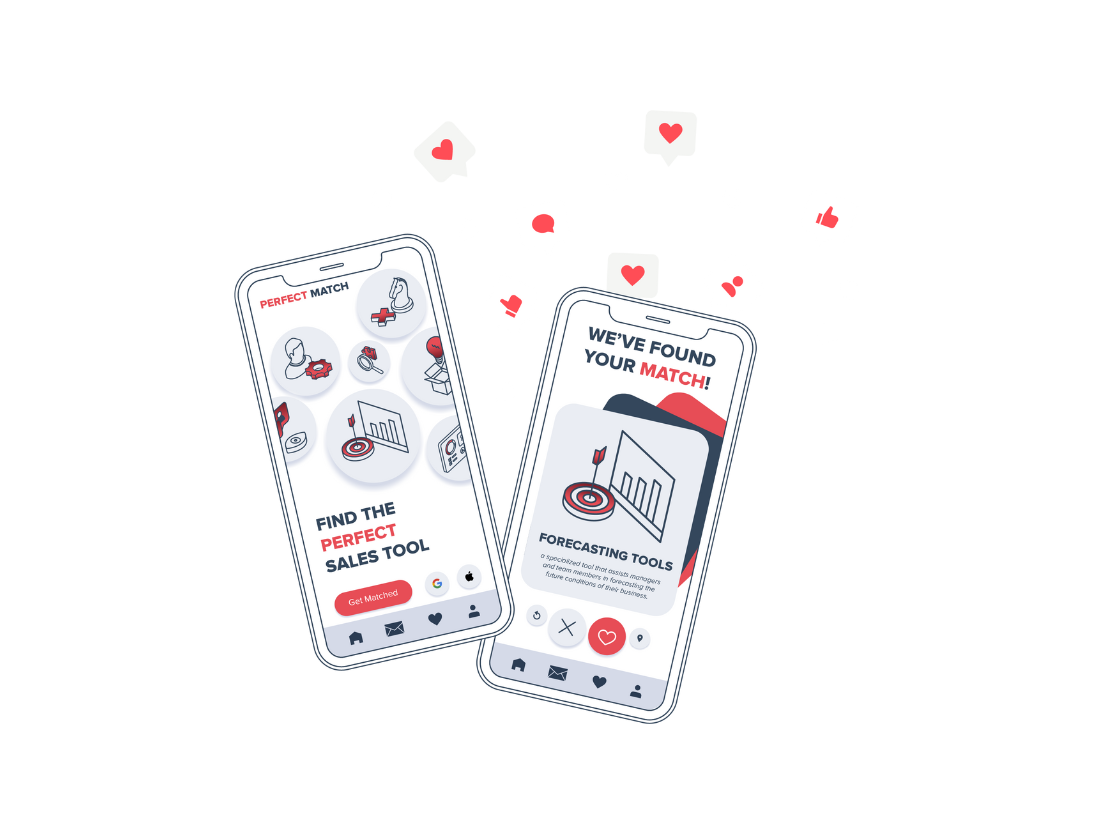The HubSpot vs Salesforce debate has been around for years - but why does it have to be one or the other?
The ongoing debate between HubSpot and Salesforce has been a talking point for years, with everyone having their say on which one makes the better CRM system.
But what many don't realise is that many companies have found a winning strategy - they're not choosing one over the other. Instead, they're leveraging both HubSpot and Salesforce simultaneously.
In this blog, we explore the reasons behind the widespread decision to use both HubSpot and Salesforce and provide a detailed overview of the integration between the two platforms.
HubSpot vs Salesforce - or is there another option?
The decision-making process for organisations has evolved from a simple question of "HubSpot vs Salesforce" to a nuanced assessment of the strengths of each.
We've noticed a common dilemma among larger organisations. Many express a desire to utilise HubSpot's powerful marketing capabilities, but there is an important factor at play.
Salesforce has been at the forefront of the CRM industry for two decades. As a result, many organisations have chosen Salesforce as their CRM and the platform is now firmly embedded in their operations, which is a challenge when considering a change.
In addition, a great number of experienced employees view Salesforce as the foundation for business and sales operations. Many have managed their sales teams with Salesforce for years and have developed a deep commitment to the platform.
However, the reasons for integrating the two platforms are wide-ranging and are based on the specific strengths of the individual platforms.
HubSpot, once known primarily for its inbound marketing and automation capabilities, has expanded its offering and now competes with Salesforce in the CRM space. Salesforce is known for its comprehensive suite of tools for managing sales processes, customisation features, customer data and general business relationships.
Salesforce excels at complex orchestration of sales processes, management of pipelines and ensuring a seamless flow of customer information within an organisation. HubSpot, on the other hand, has a user-friendly interface and a comprehensive marketing toolkit, making it an attractive option for organisations looking to improve their digital marketing.
Essentially, the debate between HubSpot and Salesforce is evolving into a more nuanced discussion about how these platforms can work together to create a unified and robust customer engagement infrastructure.
In the following sections, we'll delve deeper into the HubSpot and Salesforce integration and explore the potential of using both platforms together.
What does a Salesforce and HubSpot integration look like?
Integrating HubSpot and Salesforce can take various forms, each tailored to meet specific organisational needs. Here are a few examples to illustrate the diversity of integration strategies:
Option 1: Full Database Sync
Envision a scenario where your entire database seamlessly syncs between HubSpot and Salesforce.
In this setup, customer data flows consistently across both platforms, offering a unified view for both your marketing and sales teams. This comprehensive synchronisation ensures that everyone in your organisation is working with the most up-to-date and accurate information.
Option 2: Selective Sync
Alternatively, you may choose to keep your sales contacts exclusively in Salesforce while maintaining your marketing database in HubSpot.
With this selective sync approach, contacts only migrate to Salesforce when they reach a sales-ready status. This strategy streamlines your processes, allowing your team to concentrate efforts on engaging with prospects who have demonstrated genuine interest in making a purchase.
Option 3: Transition leads from HubSpot to Salesforce
In this scenario, HubSpot serves as a robust marketing tool for generating leads.
Once these leads qualify for the sales pipeline, they seamlessly transition to Salesforce, and their data is subsequently deleted from HubSpot. This strategy optimises each platform's strengths, utilising HubSpot's marketing capabilities and Salesforce's prowess in managing sales processes.
Understanding the specific needs of your organisation is essential in tailoring the integration strategy accordingly. These examples demonstrate that the integration journey is not one-size-fits-all, and success lies in aligning the chosen strategy with your unique business requirements.
Now, let’s have a closer look at the benefits of using both platforms together and explore why many organisations choose an integration.
Benefits of the HubSpot and Salesforce Integration
When it comes to managing and integrating business data, the HubSpot Salesforce integration proves to be a powerful solution that simplifies complexity and increases efficiency.
Aiming to seamlessly synchronise and elevate your business data, this integration eliminates the need for manual transfers and reduces the risk of errors often associated with such processes.
Let’s have a closer look at the benefits of an integration:
- Optimised setup and accessibility: HubSpot's Salesforce integration focuses on a user-friendly implementation. The user can easily initiate the integration and ensure a fast and reliable connection, which is managed by HubSpot's dedicated engineers and support staff.
- Bidirectional synchronisation for lead intelligence: The integration enables seamless bi-directional synchronisation and allows customisation of record synchronisation. Key lead information such as email opens, form submissions and website activity can be easily communicated to the sales team. This not only improves the lead prioritisation process but also saves valuable time by synchronising HubSpot's lead scoring with Salesforce.
- Closing the gap between marketing and sales: A key aspect of HubSpot's Salesforce integration is its ability to bridge the gap between marketing and sales. By leveraging Salesforce data, users can personalise emails, segment databases and send emails on behalf of sales reps. The integration eliminates manual export and import tasks associated with lists and campaign responses and provides the added benefit of tracking revenue from closed deals in HubSpot, linking campaigns directly to revenue generation.
- Workflow automation and user-defined object synchronisation: By synchronising custom objects, tickets and more between HubSpot and Salesforce, companies can eliminate manual data entry and errors. This not only increases overall productivity but also improves insights and decision-making capabilities and promotes business scalability.
In essence, the HubSpot Salesforce integration allows companies to manage, synchronise and leverage their data in one place.
The role of an Elite HubSpot Partner in facilitating a seamless integration
While the native HubSpot integration offers valuable functionalities, the reality of achieving a perfectly synchronised and stress-free combination of both platforms remains a challenge. Choosing the right integration strategy tailored to your organisation's needs is crucial, whether it's a full database synchronisation or a more selective approach.
Partnering with a HubSpot partner ensures a smoother integration process, minimises disruptions, and maximises the benefits of this powerful combination.
Solutions providers, like Huble, bring a wealth of experience and in-depth knowledge gained from working with businesses currently utilising both platforms, so you don't have to choose between HubSpot vs Salesforce.
In essence, their role extends beyond technical expertise. They understand the most important requirements of businesses, offering insights into best practices, potential improvements, and strategies to optimise the integration for your unique needs.
Contact us today to find out what the HubSpot and Salesforce integration could look like for your organisation and how we can help support you with our HubSpot services.













